
Frank Warren 2023 | Protea Hotel Ranch Resort | 3 - 7 December 2023
Frank Warren Lecture
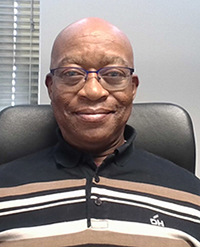
Prof WT Mabusela (University of Western Cape, South Africa)
Professor Mabusela completed his PhD in polysaccharide chemistry at the University of Cape Town under Professor Alistair Stephen, and after a two-year post-doctoral period at the same institution he joined the University of the Western Cape as a lecturer in 1990. He is currently an associate professor at the same institution and has been working in the broader area of natural products chemistry since the early 2000’s. Together with other fellow researchers, they founded the South African Herbal Science and Medicine Institute in 2002, which was dedicated to the study of indigenous South African medicinal plants. Benefiting from a long-standing partnership between the UWC and the University of Missouri, USA, they established The International Centre for Indigenous Phytotherapy Studies which was funded by the US National Institute of Health, 2006-2010. During 2011-2014, Prof Mabusela, through a collaboration with the University of Oslo, Norway, and four other institutions from Africa and Europe, initiated a EU- funded project called the " Multi-disciplinary University Traditional Health Initiative (MUTHI): Building Sustainable Research Capacity on Plants for Better Public Health in Africa " which explored various ways of adding scientific value to the traditional use of medicinal plants. He has been a visiting scientist to a variety of institutions in Africa, Europe and the USA. He has served as a consultant for a few bioprospecting companies locally, pursuing the commercialization of some medicinal plants and has been a research participant in rural development projects on the prospective cultivation of traditional herbal teas.
Plenary Speakers
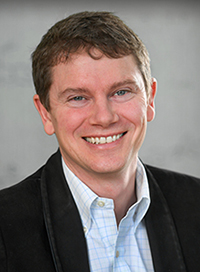
Prof Tobias Ritter (Max-Planck-Institut fuer Kohlenforschung, Germany)
Prof Tobias Ritter received his undergraduate education in Braunschweig, Germany, Bordeaux, France, Lausanne, Switzerland, and Stanford, US. He has performed undergraduate research with Prof. Barry M. Trost at Stanford, obtained his PhD working with Prof. Erick M. Carreira at ETH Zurich in 2004, and was a postdoc with Prof. Robert H. Grubbs at Caltech. In 2006, Tobias was appointed as Assistant Professor in the Department of Chemistry and Chemical Biology at Harvard, promoted to Associate Professor in 2010, and to Professor of Chemistry and Chemical Biology in 2012. Since 2015 he is director at the Max-Planck-Institut fuer Kohlenforschung in Germany and holds additional faculty appointments at RWTH Aachen and Massachusetts General Hospital, Boston. The Ritter lab focuses on late-stage functionalization chemistry, with a focus on fluorination methods and their application to molecular imaging. In 2011, Tobias co-founded SciFluor LifeScience, now OcuTerra Therapeutics, a clinical pharmaceutical company in Cambridge, Massachusetts.
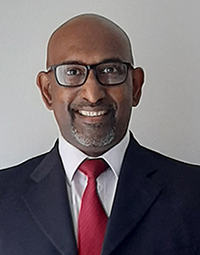
Prof Neil Koorbanally (University of KwaZulu-Natal, South Arica)
Prof Koorbanally is an Organic Chemist with over 25 years of experience in the fields of Natural Products and Synthetic Organic Chemistry. He works on the synthesis of hybrid organic molecules for the pharmaceutical industry, with a specific interest in quinolines, benzimidazoles, quinoxalines, pyrimidines, chalcones and coumarins.
His current interest is on the design, synthesis, antibacterial, antitubercular and anticancer activity of conjugate molecules, combining two or more organic frameworks or classes of compounds into a single small molecule. In recent years, he has concentrated on quinolines, quinoxalines and benzimidazoles, supervising the synthesis and bioactivity of various libraries of compounds, several of which were seen to have better activity than known drugs. Beside Organic Synthesis, he still enjoys isolating natural products from plant sources and working out their structures. “This is one of the more challenging aspects of Organic Chemistry.”
Professor Koorbanally was the 2005 Colenso Scholar at St. John's College at the University of Cambridge and featured amongst the Top 30 most published researchers in 2012, 2015 and 2016 at the University of KwaZulu-Natal. To date he has published 171 scientific articles, with over 3000 citations, an H-index of 31 and i10 index of 90 on Google Scholar. He graduated 25 doctoral and 26 Masters students to completion and currently has a group of 7 doctoral and 5 Masters students. He is currently the Dean of Research in the College of Agriculture, Engineering and Science at the University of KwaZulu-Natal.
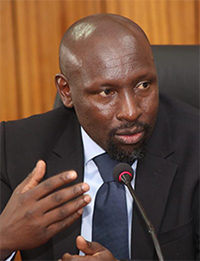
Prof Moses Langat (Royal Botanic Gardens Kew, UK)
Prof Langat is a Research Leader for Natural Products Chemistry at the Royal Botanic Gardens Kew (UK), a Professor at the Pen Resource University and a visiting Lecturer at the University of Surrey and RHUL. In addition, he is a Research Supervisor for students registered at Kingston University, Tshwane University of Technology, University of Douala, Mahidol University and Egerton University. Moses obtained PhD in Natural Products Chemistry at the University of Surrey (2009) and remained as a Post-Doctoral-Fellow (2009-2012) on an EC funded project, FORESTSPECS. He holds an MSc of Egerton and was visiting researcher at the University of KwaZulu Natal (2005) and North Carolina State University (2011). His research includes the identification of biochemicals from plants and fungi, establishing their structures, and development of the biochemicals into commercially valuable products for pharmaceuticals, agricultural, cosmetics, and other applications. Currently, he is involved in the development of a patented plant-derived product, Larixyne®, for the treatment of downy mildew on grapes, and improves pyrethrum-based formulations for crop pests’ management. He also supports the development of Croton based-products for use in pest management, feeds, biofuels and as drug leads. He has published over 120 papers in peer-reviewed journals, and his research has been funded by Kew, UKRI, EC, AMS/GCRF, and the Royal Society. He was recently conferred the Elder of the Order of the Burning Spear, EBS (2022) award by the President of the Republic of Kenya for his distinguished and outstanding service to Kenya.
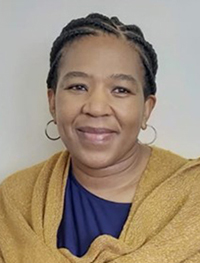
Dr BG Hlangothi (Nelson Mandela University, South Africa)
Dr Buyiswa Hlangothi is an organic chemist in the Faculty of Science at Nelson Mandela University, Chemistry Department. She was a lecturer at the University of the Free State for almost five years before joining Mandela University as a postdoctoral fellow in 2009. Buyiswa is Group Leader in Medicinal Plant Chemistry research. Her research focus is the study of active compounds present in plants, their structures, properties and mechanisms of action. The study also involves extracting, purifying and isolating single compounds following bio-guided assays. Her research aims to unlock the potential of plant chemicals to improve human health, agricultural productivity, and environmental sustainability. All her current group research projects are linked and aimed to impact these three areas (health, agriculture and environment). She has research collaborations nationally and internationally. Buyiswa has graduated several postgraduate students (masters and PhDs) and currently mentoring two postdoctoral fellows. Her research findings have been presented on national and international platforms and published articles in accredited peer-reviewed Journals.
Buyiswa is the Acting Director of the School of Biomolecular and Chemical Sciences within the NMU Faculty of Science and is also a current Science Education Forum coordinator and Resources Stewardship strategy task team leader. She is a former Head of the Chemistry Department 2019-2022. Dr Hlangothi is a member of the Faculty Postgraduate Studies Committee and the Faculty Research, Transformation and Internationalisation Committee. She is the Port Elizabeth Business Women Association Award Winner, 2018, Government category, for her passion for student coaching and development and community engagement activities.
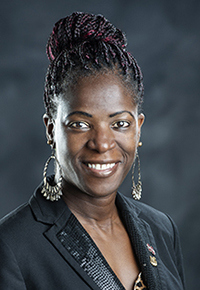
Prof Dr Colleen Scott (Mississippi State University, USA)
Dr. Scott is an Associate Professor of Chemistry at Mississippi State University. She began her journey in Kingston, Jamaica, where she grew up and attended Meadowbrook High School. Following high school, she accepted a track and field scholarship to Auburn University where she graduated with a bachelor’s degree in chemistry (cum laude). At Auburn, she received several athletic and scholarly awards. Notably, she was twice the Southeastern Conference (SEC) Champion in the long jump and All-American in the long and triple jumps. She also received the student of the year award in Chemistry for her junior and senior year, the Howard Hughes Future Life Scholar, and the Arthur Ashe Award to honor minority student-athlete with high achievement in sports and in the classroom. She went on to obtain her Ph.D. in chemistry from the University of Pittsburgh, under the guidance of Dr. Craig Wilcox. Her thesis focused on the development of methods for the synthesis of organic and supramolecular compounds.
Dr. Scott’s research focuses on organic and polymeric materials; specifically, materials for degradable alternative thermoplastics, semiconducting polymers for organic optoelectronic devices, and chemo- and biosensors. Dr. Scott has received several awards for her research. Most notable are the prestigious NSF Faculty Early Career Development (CAREER) Award, the College of Arts and Science Research Award, and the TechConnect 2022 Innovation award for the development of Near-Infrared II Dyes for Biological Imaging and Optoelectronic Devices.
Dr. Scott is married and has one son.
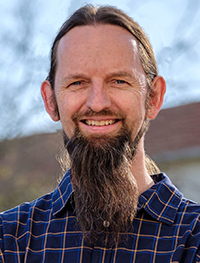
Prof Willem van Otterlo (Stellenbosch University, South Africa)
Willem van Otterlo was born in Amsterdam, The Netherlands (1970). He then moved to southern Africa and did his primary and secondary schooling in Namibia and South Africa. In 1999 he graduated with a PhD, involving the synthesis of analogues of the michellamines, under the mentorship of Professors C.B. de Koning and J.P. Michael (School of Chemistry, University of the Witwatersrand, Johannesburg, South Africa). He then spent two years in the research group of Professor Stephen Hanessian (University of Montreal, Quebec, Canada) as a post-doctoral research fellow in projects involving peptide-based building blocks. In 2001 he returned to the University of the Witwatersrand to take up a lecturing position and initiated a research program involving the application of organometallic reagents to the synthesis of small benzo-fused molecules, progressing to the position of Associate Professor in 2008. He then joined Professor Herbert Waldmann’s Chemical Biology group at the Max Planck Institute, Dortmund, as a von Humboldt Georg-Forster Research Fellow, for a sabbatical year to learn more about the interaction between chemistry and biology. In 2010 he was appointed to the Chair of Organic Chemistry in the Department of Chemistry and Polymer Science at Stellenbosch University. Prof. van Otterlo is also involved in the greater SA chemical society and is presently the president of the South African Chemical Institute (SACI). Apart from a fascination with the application of organometallic chemistry to synthesis, his research interests are focused on the synthesis of small molecules with potential bioactivity, particularly in the areas of kinase inhibition (cancer and rheumatology) and anti-viral targets. He is also interested in the modification of natural products for the development of new anti-cancer agents. In recent years he has also pursued the isolation of novel bioactive metabolites from Southern African plants that have been un/under-studied. Investigations into the local manufacture of APIs also form part of the portfolio of new projects ongoing in his laboratories. Prof. van Otterlo collaborates extensively (Germany, USA, Italy, Belgium, France, Portugal) and has published >130 papers and graduated >50 postgraduate students as co- or supervisor.
Keynote Speakers
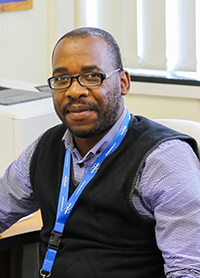
Prof David Khanye (Rhodes University)
David Khanye completed a PhD (Chemistry, 2010) at the University of Cape Town, South Africa, under the supervision of Professors Kelly Chibale and Gregory Smith, working on synthesizing gold-based metallodrugs as antimalarials. Prior, David received his BSc (2004), BSc. Hons. (2005) and MSc with Marcus Layh (2007) from the University of the Witwatersrand (Wits). He was awarded an NRF postdoctoral fellowship to join the group of Professor Debbie Crans at the Colorado State University (USA) but opted for an industrial-linked fellowship. He then undertook a postdoctoral fellowship (2011) at GlaxoSmithKline Tres Cantos (Madrid, Spain), working on the synthesis of antimycobacterial compounds. Upon his return to South Africa, he joined iThemba Pharmaceuticals before he moved to join the Department of Chemistry at Rhodes University in July 2012. In August 2018, he transferred to the Faculty of Pharmacy within the same institution. He currently holds an NRF C2 rating. His research interests encompass the design and synthesis of compounds with medicinal potential against essential animal diseases, trichomoniasis, and triple-negative breast cancer.
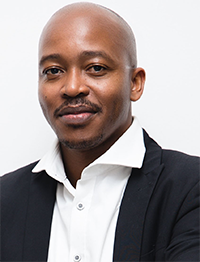
Dr Paseka Moshapo (University of Johannesburg)
Dr Moshapo obtained his PhD in Organic Chemistry from the University of Johannesburg, Department of Chemistry (now Department of Chemical Sciences) in 2017 under the supervision of Professor Henok Kinfe. He then joined the same institution as a Lecturer in mid-2017. He was then appointed as a senior lecturer in 2021. He is a recipient of the NRF-Thuthuka Post-PhD Grant which he has held since 2018. His research interests are in methodology development for organic synthesis, palladium mediated catalysis and medicinal chemistry focusing on the development of new chemical entities for application as anti-TB and anti-Malarial agents. He has had the privilege of successfully supervising and co-supervising 8 MSc students and 1 PhD student. Currently, he is supervising 2 MSc and 2 PhD students, some of whom will be participating in the conference. He has published more than 18 research articles with a Scopus H-index of 6 and Google Scholar H-index of 7.
Dr Njabulo Gumede (Walter Sisulu University)
Dr. N.J. Gumede is currently a senior lecturer at the Department of Chemical and Physical Sciences at Walter Sisulu University (WSU). He received his Ph.D. in chemistry from the Durban University of Technology in 2016 at 33 years of age. As part of his PhD project, he undertook study visits in the Bioanalytical Laboratory at the University of Valencia, Spain in 2011 and 2013, under the supervision of Prof. Salvador Sagrado. He subsequently had a Sabbatical Fellowship training in Italy in 2020 at the Institute Pascale under the supervision of Dr. Alfredo Budillon.
Dr. Gumede, has 14 years of teaching, research, institutional, and administrative experience attained previously when he worked at Mangosuthu University of Technology (MUT). He has previously received various awards for teaching excellence and outstanding research while at the MUT. He has a portfolio of granted IP, namely, two patents granted in the RSA, China, and the USA.
Overview of the Research
Dr. Gumede’s main research area is a combination of the following chemistry subdisciplines: Organic, Computational, Medicinal, Chemometrics, Cheminformatics, and Analytical Chemistry. His current research initiatives are at an interface between basic, applied, and technological developments. He has designed new chemical entities (NCEs) for the treatment of various forms of prostate cancer (PCa). These include nonmetastatic Castration Resistant Prostate Cancer (nmCRPC), metastatic Castration Resistant Prostate Cancer (mCRPC), and various forms of breast cancer. He is also working on Androgen Receptor antagonists using molecular modelling techniques. He is fully competent in the following molecular modeling techniques: molecular docking, hybrid Quantum Mechanics/Molecular Mechanics simulations (QM/MM), Molecular Dynamics simulations, 3D-QSAR pharmacophore modeling, Reaction-based Enumeration, and Free-Energy Perturbation plus (FEP+) technologies in drug discovery and development.
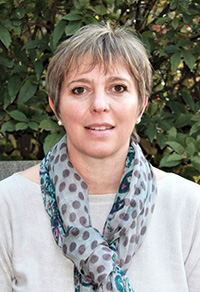
Prof Amanda Rousseau (University of the Witwatersrand)
Professor Amanda Rousseau completed her PhD degree in synthetic organic chemistry at the University of the Witwatersrand in 2000, and then joined the Fine Chemicals Group at the Council for Scientific and Industrial Research (CSIR). Initially she worked on the development and scale-up of innovative chemical technologies for the manufacture of fine chemicals, but then moved into small molecule drug discovery, eventually as Principal Researcher, at the Biosciences Division of CSIR. She then joined the staff of the School of Chemistry, University of the Witwatersrand, in 2011. While retaining general interests in synthetic organic chemistry, her research focuses on the design and synthesis of compounds with the potential to display antimalarial activity. Of particular interest is the synthesis of inhibitors of folate metabolism, and novel compounds with the potential to prevent malaria transmission.
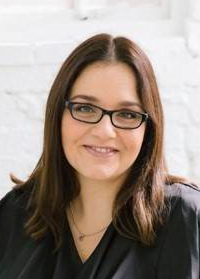
Dr Jenny-Lee Panayides (CSIR)
Dr Jenny-Lee Panayides is a Principal Researcher and Research Group Leader (Pharmaceutical Technologies) at the Council for Scientific and Industrial Research, South Africa. She holds a PhD in synthetic chemistry and microbiology (University of the Witwatersrand) and certification in advanced project management (University of Pretoria), having been previously employed by the SA Medical Research Council. She has worked as a principal investigator focusing on projects that supported the malaria eradication agenda through the development of transmission-blocking agents, identified novel pharmacophores with activity against multiple strains of drug-resistant malaria, focused on the structure-aided discovery of novel treatments for Alzheimer’s disease and investigated inhibitors as targeted therapeutic agents for breast cancer.
In recent years, Dr Panayides has shifted her research focus to supporting the self-sufficiency of African pharmaceutical manufacturing through the localisation of modern manufacturing technologies. She now drives an applied research programme in hybrid process development (incorporating flow chemistry, batch synthesis and biocatalysis), alongside the integration of smart control and monitoring for intelligent process transformation. She currently leads the CSIR’s Pharmaceutical Technology Innovation Platform and the establishment of the FuturePHARMA facility. In addition, Dr Panayides provides thought leadership on various working groups in the pharmaceutical and fourth industrial revolution technology space.
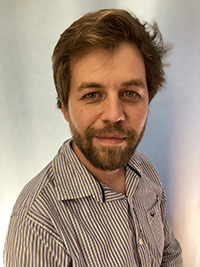
Prof Clinton Veale (University of Cape Town)
Clinton Veale is an Associate Professor of Organic Chemistry at the University of Cape Town. He is the current head of the South African Chemical Institute organic chemistry division, and a Royal Society - African Academy of Sciences, FLAIR Fellow. He has a broad interest in organic chemistry, chemical biology and biophysical chemistry and its applications for exploring extracellular chemical space and Protein-Protein Interactions for drug discovery and medicinal chemistry.